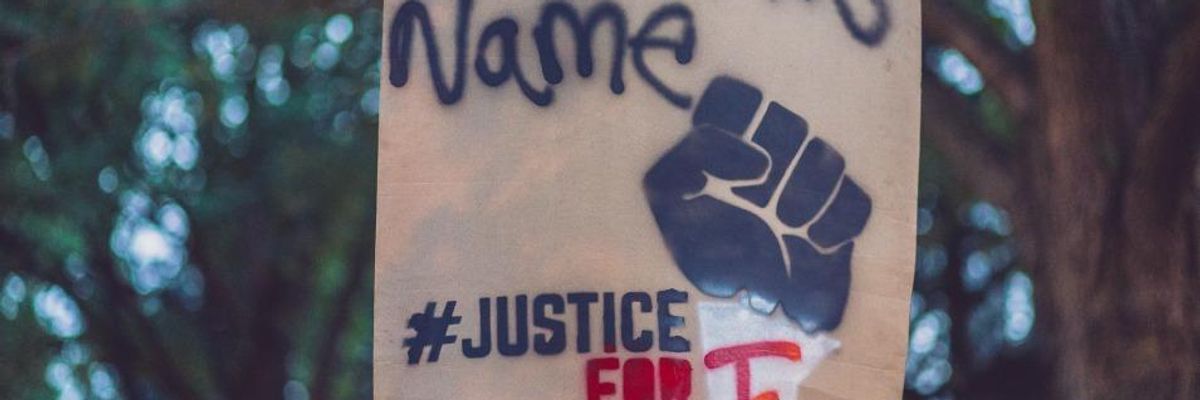Alton Sterling and Philando Castile lost their lives to police brutality last week. While their deaths fit an all too familiar narrative for black men and women living in America, what we haven't emphasized enough--especially in the accounts told by media--is the value their lives held.
Before they were hashtags, these men mattered.
I can say this with certainty because I was raised in the "hood" in South Memphis that was home to a CD/DVD man like Alton and cafeteria workers like Philando. These men helped to bring light and joy to my life, and the lives of all of my community members. Our "bootleg man," like Alton, was a fixture outside of the neighborhood shopping center--always cracking jokes and willing to cut deals with loyal customers. I was "Red" to him--a nickname given to me by several people due to my light-skinned complexion. He remembered my love of Anita Baker and Stevie Wonder, and always made a relentless effort to make me smile, even if I didn't purchase a CD from him that day.
My hometown is riddled with poverty and violence, and shrouded with a hopelessness that clings to its residents like the humid summer heat. Run-down homes and buildings stretch for miles on litter-filled streets, and our community park is marked by broken swings and rotted park benches. From kindergarten through second grade, my classmates and I were dismissed early from school as soon as the summer heat began, because the school's air conditioner was broken. In third grade, we were once sent home because asbestos was falling on us from the caved-in ceiling. I can still remember the tingly itchiness of the fibers on my eight-year-old back and shoulders.
Still, black joy found a way to exist: it came to us through the CD/DVD man who provided affordable entertainment and a charismatic, hard-working attitude to emulate; and cafeteria workers who made you feel special by remembering your favorite meal, and that you loved the butter cookies more than the chocolate chip ones.
What if the media spoke about the men who lost their lives in this light? What if the accounts of Alton focused on his generosity and value to his community, instead of his mugshot and criminal record?
What if instead of replaying the gruesome video of Philando's dying body, major news outlets shared the beautiful statement from the Saint Paul Public School District that details how beloved he was to his colleagues, and describes the "great relationships" he had with the staff and students he helped to feed every day?
What if the media acknowledged that economic shifts hit black communities--many of which are already in poverty--the hardest? What if it regularly explored the ways that men like Alton Sterling and Eric Garner--killed by a New York City Police Department officer in 2014--are examples of "the black men most likely to be left out of the formal economy," who engage in "hustles to make ends meet, and are far more likely to suffer from police violence," as Lester Spence, a professor of political science at John Hopkins University, told Salon.
When you are in poverty, and at such a disadvantage in our economy, you must hustle to create opportunities for yourself--not to build wealth, but to survive.
I hustle, too. Along with several of my peers, I engage in informal work--like housesitting, babysitting, and pet-sitting--for additional income. Are we immune from the critiques applied to Alton or Eric because we are college-educated individuals living and working in the nation's capital?
Before you cast Alton as a criminal or thug, or offer up tortured logic saying that Philando "should've just followed the police orders," consider these men as men. They were fathers, significant others, providers, and beams of light and love among their families and peers. They were individuals with real worth to their friends, neighbors, and colleagues. Their humanity--along with the humanity of everyone who is living in poverty--deserves acknowledgment, respect, and honor.
So before you type a hashtag in front of their names--full of rage and righteous indignation--stop and ask yourself: would these men have mattered to you before they were so tragically taken? Would you have purchased a CD from Alton? Would you have spoken to Philando? Would you have even noticed them?
Alton and Philando mattered. Their black lives mattered before #BlackLivesMatter, and they always will. We need to celebrate people's worth when it truly matters the most--during their lives. Then maybe fewer black men and women will be reduced to a hashtag.
